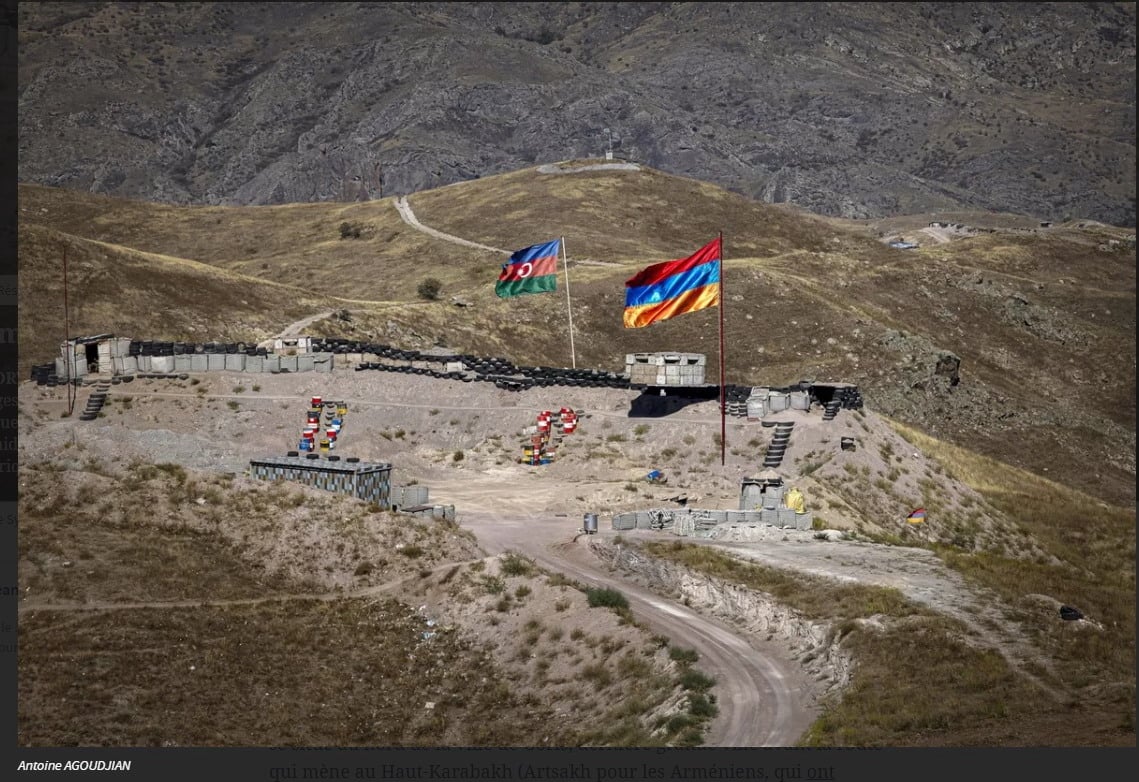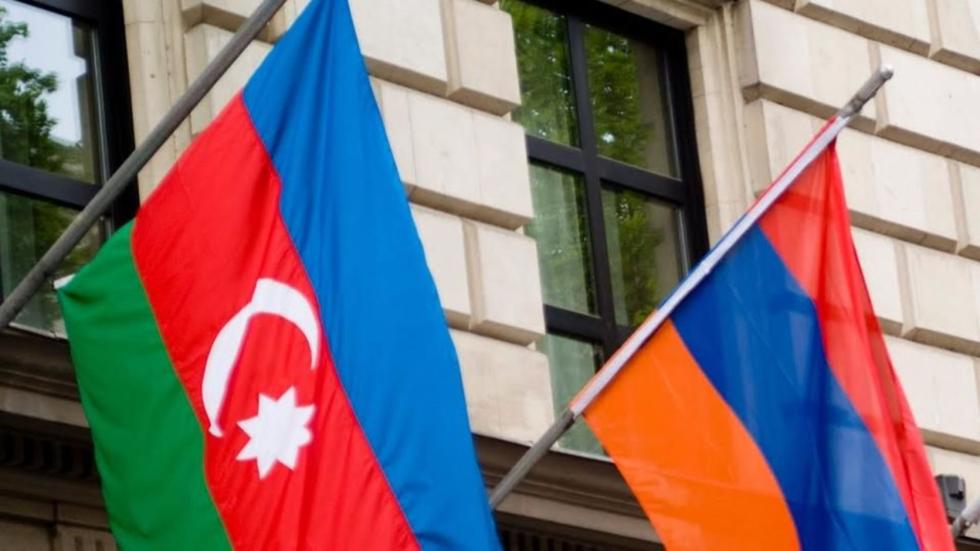Armenia’s foreign ministry hits back at resolutions from Organisation of Islamic Cooperation
Armenia slams OIC resolutions
Following a ministerial conference, member states of the Organisation of Islamic Cooperation (OIC) adopted the “Istanbul Declaration” and a series of resolutions initiated by Azerbaijan, including one asserting “the right of return” for Azerbaijanis allegedly “forcibly displaced from the territory of present-day Armenia.”
The OIC documents condemned Armenia’s alleged denial of the rights of the so-called “Western Azerbaijan” community.
Armenia’s foreign ministry denounced the resolutions as “distorted and highly one-sided,” stating they “contradict the logic and interests of long-term peace in the region.”
Yerevan said the discourse around “Western Azerbaijan” is a thinly veiled territorial claim on Armenia’s sovereign land, disguised as a human rights concern.
The Ministry of Foreign Affairs calls on the member states of the Organization of Islamic Cooperation that have joined the aforementioned declaration and resolutions to review and resolutely reject biased initiatives that target Armenia’s territorial integrity and sovereignty and jeopardize the normalization process between Armenia and Azerbaijan.
Local political analysts described the foreign ministry’s response as “accurate and justified,” though criticised the Armenian government for previously failing to counter Baku’s persistent disinformation.
The OIC includes 56 countries, among them Armenia’s neighbours—Turkey, Azerbaijan and Iran—as well as four CIS states: Kazakhstan, Kyrgyzstan, Tajikistan and Uzbekistan.
- “No diplomatic breakthroughs”: Pashinyan and Erdogan meet in Istanbul
- “Baku must not be allowed to exploit Iran–Israel escalation”: Yerevan’s position
- “Yerevan’s proposals on unblocking dispel Baku’s concerns,” Armenian officials believe
What else is mentioned in OIC resolutions
The members of the Organisation of Islamic Cooperation also address the normalisation of Armenian-Azerbaijani relations. In particular, they welcome the agreement on the terms of a peace treaty. At the same time, they call on Armenia to “overcome the remaining legal and political obstacles preventing its signing, and to stop undermining the sovereignty and territorial integrity of Azerbaijan.”
Azerbaijan has set two preconditions for signing the peace treaty: the dissolution of the OSCE Minsk Group, which had been working on resolving the Karabakh conflict, and amendments to Armenia’s constitution. The constitution contains a reference to the Declaration of Independence, which in turn cites a joint resolution of the Supreme Council of the Armenian SSR and the National Council of Nagorno-Karabakh from 1 December 1989 “on the reunification of the Armenian SSR and Nagorno-Karabakh.” Baku considers this to be a territorial claim.
Yerevan denies this interpretation. It also considers constitutional reform an internal matter. At the same time, Armenia’s prime minister believes the new constitution may omit the reference to the declaration. Armenia is also not opposed to dissolving the Minsk Group, but the government believes a joint appeal to the OSCE on the matter should take place in parallel with the signing of the peace treaty.
The Istanbul Declaration calls on member states and Islamic financial institutions to support “the reconstruction and demining of the liberated territories [of Nagorno-Karabakh] to ensure the dignified return of internally displaced persons expelled from their lands as a result of Armenian aggression.”
The OIC also condemns:
- “war crimes, genocide and crimes against humanity committed by Armenian armed forces in the Azerbaijani city of Khojaly in February 1992”
- “acts of vandalism committed by Armenia against Islamic cultural heritage on the territory of Azerbaijan”
Armenia urges OIC members to “reconsider their position”
Armenia’s Foreign Ministry expressed “deep disappointment with the distorted and highly one-sided wording contained in the Istanbul Declaration and the resolutions adopted at Azerbaijan’s initiative.”
The ministry reiterated its long-standing position that Baku’s promotion of the “Western Azerbaijan” concept amounts to a territorial claim on Armenia’s sovereign land:
“It is worth recalling that “Western Azerbaijan” refers to Azerbaijan’s own western regions—namely, Qazakh, Tovuz, Aghstafa, Gadabay, Dashkasan, Kalbajar, Lachin, Gubadli, Zangilan, and Nakhichivan. There is no such place as “Western Azerbaijan” on the territory of the Republic of Armenia—nor can there be.”
The ministry also responded point by point to other issues raised by OIC member states in the documents adopted in Istanbul.
On Azerbaijanis who lived in Soviet-era Armenia
“Regarding Azerbaijanis living in Soviet Armenia, they voluntarily left Armenia in the final years of the USSR, managing to sell or exchange their property or receive compensation from the Armenian government.
Unfortunately, the same cannot be said for the fate of Armenians in Azerbaijan—in Baku, Sumgait, and other places, where massacres and forced displacement of Armenians took place.
The most recent manifestation of this in our region was witnessed by the world in the fall of 2023, when over 115,000 Armenians were forced to flee Nagorno-Karabakh subjected to ethnic cleansing.“
On events in Khojaly, which Baku refers to as “genocide”
“The misinterpretation of the Khojaly events also causes astonishment. The true history of crimes against humanity is well-known and directly refutes any accusations against the Republic of Armenia.”
On Armenian-Azerbaijani peace treaty
“It is regrettable that the adopted declaration, deviating from the statements made by OIC members in March of this year and subsequently regarding the conclusion of the Agreement on establishment of interstate relations and peace between Armenia and Azerbaijan, contains one-sided assertions about the preconditions existing on the path to signing the agreement.
We draw the attention of OIC members to the fact that Armenia has expressed its readiness to sign the Agreement without any delay, proposing to start consultations on the venue and date of its signing, as well as offering constructive solutions to address a number of issues raised by Azerbaijan.
It would be more logical for partners interested in establishing peace in the region to urge Azerbaijan to sign the agreement without unnecessary delay, refraining from creating artificial obstacles in this process.”
On “destruction” of Azerbaijan’s cultural monuments
“Ignoring the ongoing destruction of Armenian cultural heritage under Azerbaijani control and the systematic acts of vandalism against it, the resolution frames the issues with religious connotation, thereby fueling false and dangerous narratives. Armenia’s respect for and careful treatment of Islamic cultural heritage is well known and easily provable.”
The statement also notes that there is now a genuine opportunity to establish peace in the South Caucasus.
“There is a genuine opportunity to establish peace in the South Caucasus, and any such approach demonstrated by an international organisation does not contribute to the effective realization of that opportunity. The Republic of Armenia remains committed to the strategy of implementing the peace agenda and expects from its international partners, including the Organization of Islamic Cooperation support for the efforts to establish lasting and sustainable peace between Armenia and Azerbaijan.”
Expert commentary
Tatevik Hayrapetyan, an expert on Azerbaijan, wrote on her Facebook page:
“If Armenia’s Foreign Ministry had been actively engaged in diplomatic, political and informational efforts following Aliyev’s speech on 24 December 2022 — in which he introduced the expansionist concept of ‘Western Azerbaijan’ — then they would not now be ‘deeply disappointed’ by the dangerous wording in the ‘Istanbul Declaration’ adopted at the recent OIC ministerial conference.
They should be deeply disappointed in themselves — for either lacking the skill or the will to act. The spread of this expansionist concept is a direct result of their INACTION.”
Political commentator Hakob Badalyan observed:
“The Foreign Ministry’s statement is absolutely accurate and to the point. What’s equally disappointing is that member states of the OIC include countries like Iran, Egypt, and Qatar — countries frequently visited by the Armenian prime minister’s wife and high-ranking officials as part of their foundation’s work.
But here’s the key question: did Armenia anticipate these risks and engage diplomatically with these states, or with other OIC members that maintain friendly ties with Armenia? Did the Armenian Foreign Ministry try to prevent the adoption of such resolutions or their wording?
For instance, Nikol Pashinyan was in Istanbul just a day before the OIC conference. Was this issue raised during his meeting with the Turkish president? Did Ankara bring up the resolutions it was set to adopt the following day? Let’s not forget, Turkey was chairing the OIC meeting in Istanbul.
Perhaps it suits the Armenian government to portray the situation as one where ‘everyone is ganging up’ on Armenia. But that is precisely what state policy and diplomacy are for — to prevent that from happening. Armenia must engage those with whom it has good relations. It must work with countries that are not only willing to stand apart from the group, but also capable of blocking or voting against such documents.”




















